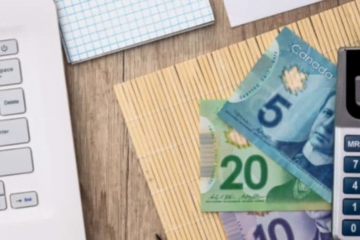Most Canadians filing for bankruptcy are honest individuals who are experiencing serious financial problems. Unexpected personal crises like unemployment, health problems, and divorce are common reasons for declaring bankruptcy. Occasionally, with malice and forethought, someone will commit what is considered bankruptcy fraud. That’s an offence under the law, and it is punishable, on conviction, by a fine or imprisonment.
What is Bankruptcy Fraud?
Bankruptcy fraud can take several forms, but they all have one thing in common—a lack of transparency in dealing with creditors and your Licenced Insolvency Trustee.
Common forms of fraud include a bankrupt individual deliberately doing the following:
- Making a fraudulent disposition of their property before or after the date of the initial bankruptcy filing.
- Refusing or neglecting to answer fully and truthfully all proper questions put to them at any examination held pursuant to the Bankruptcy and Insolvency Act of Canada.
- Making a false entry or knowingly making a material omission in their Statement of Affairs
- After or within one year, immediately preceding the date of bankruptcy, deliberately concealing, destroying, mutilating, falsifying or making an omission from any document affecting or relating to the bankrupt’s property or affairs, including being privy to the above acts.
- After or within one year immediately preceding the date of bankruptcy, obtaining any credit or property by false representation made by either the bankrupt or by any person to the bankrupt’s knowledge.
- Creating or presenting fraudulent documents to obtain a loan or receive something valuable
- After or within one year immediately preceding the date of bankruptcy, fraudulently conceals or removes any property of a value of fifty dollars or more or any debt due to or from the bankrupt.
- After or within one year immediately preceding the date of bankruptcy, hypothecates, pawns, pledges or disposes of any property that the bankrupt has obtained on credit and has not paid for, unless in the case of a trader, where this is part of the ordinary way of trade.
How is bankruptcy fraud revealed?
Bankruptcy has built-in checks designed to spot potential fraud. Licensed Insolvency Trustees are required to ask for sworn statements regarding your affairs: your income, expenses, and the circumstances of your debts. They are also required to ask questions about any assets that may have been disposed of, sold, or given away. The key to avoiding bankruptcy fraud is to answer all of these questions completely and truthfully. You sign a sworn document called a “Statement of Affairs” when you file the Assignment in Bankruptcy. Be sure that the information contained on that document is correct to the best of your ability.
For example, if you transferred an asset to a family member shortly before bankruptcy, be sure to tell your LIT. They will examine the situation and decide whether it is what is called a “reviewable transaction”. That means, your decision to transfer the asset may need to be reversed or corrected. It is only fraud, however, when you attempt to hide the action and prevent the review.
Neighbors and family may also report any fraudulent behavior they observe. Creditors, banks, and casinos report these kinds of activities to the authorities on a regular basis. In this digital age, it is amazing just how much our creditors know about us. Suspected bankruptcy fraud can be reported on the website maintained by the Office of the Superintendent of Bankruptcy (OSB). All reports are investigated by the OSB and the Royal Canadian Mounted Police (RCMP).
What happens if you’re found guilty of fraud?
Bankruptcy fraud is a serious offense, and penalties vary. Most often, purchases or profits are not included in the bankruptcy. You will be required to pay for purchases or refund the profits related to your fraudulent activities. If you are convicted, your bankruptcy will be reviewed, and you will no longer qualify for an automatic discharge.
A Consumer Proposal or bankruptcy may be very difficult to obtain in the future, should you run into financial problems again. Depending on the seriousness of the offense, fines may be charged, and jail time can also be part of the penalty.
The few people who deliberately attempt bankruptcy fraud likely believe that they will not be discovered. However, the OSB and Licensed Insolvency Trustees are very good at spotting fraud.
Most people who file for bankruptcy are honest and unfortunate debtors who have fallen on difficult financial times. If you are considering bankruptcy, be sure to tell your Licensed Insolvency Trustee everything there is to know about your financial situation, debts, and assets, so that they can give you a complete picture of what will happen should you file an Assignment in Bankruptcy. The people that run into problems are the ones that omit vital information when meeting with their Trustee in an initial consultation. The Trustee can then only deal with the information they have been given. When new information comes to light after you have filed the Assignment, you may experience an unpleasant surprise.

















